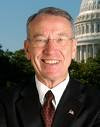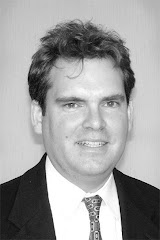
Yes, the key players are French, and the film is set largely in the 1970s when young adults would do such eye-rolling things as run around in fields giving each other piggyback rides.
We see this in the archival footage that is the back story to "Man on Wire," the documentary about the "artistic crime of the century" that just won an Academy Award.
"Man on Wire" chronicles the insanity or daredeviling of French wire-walker and street performer Philippe Petit, who in 1974, at age 24, surreptitiously strung cables between the Twin Towers of the World Trade Center in New York City and proceeded to spend 45 minutes walking it, tightrope-style, with no net. He was but a footfall or sweeping gust of wind away from oblivion.
What Petit, with a rag-tag collection of eccentrics, and some 1970s long hairs who appear to be stoned out their minds in the archival footage, did that day was, of course, illegal.
They used fake IDs and other tactics to gain access to the roofs of the towers so they could string the cable for Petit's daring-do.
In the 94-minute documentary, which is a British production done primarily in English with some French subtitling, we see Petit lay preparations overseas for the high-wire act and then hide out in the Trade Center with his gear the night before the "performance."
It is very much a chronicling of insanity. Or is it?
Against logic it is a thing of beauty to see Petit and his confederates breach World Trade Center security for purposes of art, not Armageddon.
Underlying this documentary, with its spectacular shots of New York City from the tops of the towers, is the gnawing sense the viewer has of the horrors we would we see on Sept. 11.
One of the more profound interviews I've recorded for the Daily Times Herald came from a Carroll High School graduate who was on the ground outside of the Towers more than 30 years after Petit walked between them.
After her 30-minute subway commute to the World Trade Center on Sept. 11, 2001, Michelle Gatton emerged from a train in the concourse area of the center only minutes after the first of the Twin Towers had been skewered by an airliner.
It's the building where she worked on the 52nd and 84th floors as a marketing professional for a software company.
"I had to be there at 9 a.m.," she told me later that day. The crashes took place minutes apart around that time.
Gatton saw the fire and the smoke and the second explosion from a vantage point across the street from the towers. Gatton's voice shook as she described the horrifying scene during an interview with the Daily Times Herald.
"I actually saw four people jump," Gatton said. "When you can see their arms and legs waving in the air as they fall it's not pretty."
It's still hard to read that quote.
While I watched "Man on Wire" and endured the insufferable Frenchness of Petit (who mocked American reporters for asking the obvious, "Why?") a peculiar effect took hold.
I saw his rebellious stunt, his mocking of life itself, his dance with God, if you will, up in the misty, cloudy Trade Center air, in the way I would imagine Petit wanted us to: as a mesmerizing reaffirmation of the human spirit.
"To me, it's really so simple, that life should be lived on the edge," Petit says in "Man on Wire." "You have to exercise rebellion. To refuse to tape yourself to the rules ... to refuse to repeat yourself, to see every day, every year, every idea as a true challenge. Then you will live your life on the tightrope."
This story is crossposted on the Carroll Daily Times Herald Web site.

















